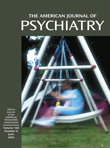Mastering Forensic Psychiatric Practice: Advanced Strategies for the Expert Witness
Every Sunday I go to kneel in mass and ask God’s forgiveness for making another lawyer.
Dennis Patrick Cantwell (1)
Professor Cantwell loved and honored his eldest daughter, who is an attorney, as he loved all of his family, and I know and they know that he was joking when he spoke of asking for divine forgiveness. Dare we wonder if Professor Cantwell, of beloved memory (2), may well have faced the same or similar challenges described by Professors Gutheil and Simon in this text, which all of us who choose to provide forensic opinions may confront?
Professors Gutheil and Simon provide a cornucopia of wisdom for the forensic expert. Those who have provided forensic opinions for a period of years and are just now reading this text will find themselves nodding with rueful smiles.
I have been fortunate. The overwhelming majority of the attorneys with whom I have worked have conducted themselves with the highest ethical level of gracious, professional demeanor. Nevertheless, there have been a few occasions where the words of Professors Gutheil and Simon ring all too true. Here are examples of those few occasions when their warnings were appropriate.
“The attorney is not under oath.” What does that really mean? I was aghast to hear an attorney state during a closing argument that I did not have certain qualifications that, in point of fact, I had never claimed to have. This went unchallenged by both opposing counsel and the sitting judge. I was left wondering what was going on. The answer is all too simple. “The attorney is not under oath.” In reviewing the matter with another attorney after the trial was over I was informed, “They do that all the time!” Do they? Do they indeed? Not having read Gutheil and Simon this was news to me!
“Be minimal at deposition; then expansive at trial.” This is true advice, which I have learned the hard way in a forensic tête-à-tête.
“Be prepared.” Correct again. Any attorney’s hesitation in preparation may well stem from a wish to keep down costs. I have learned to insist on proper preparation, which necessarily includes examination of the entire database.
“A conservative is a liberal who has just been mugged.” How very true. As counterintuitive as it feels to me, I have learned, again the hard way, to request from the start that a check for a reasonable sum accompany the records-to-be-reviewed.
An attorney asks you to see and examine an individual as part of your forensic work. Does this establish a doctor-patient relationship? What will you do? How will you address this issue? On page 22, Professors Gutheil and Simon present a model Consent for Forensic Examination. The following consent form is an excerpted and paraphrased version presenting the pertinent sections of this vital and valuable consent form.
I understand that the doctor is not acting as my physician.
I agree to give up my rights to have the doctor keep secret what I tell him or her.
I agree that the doctor can make reports for attorneys and to judges in a courtroom.
I understand that this examination may help my case, hurt my case, or have no effect on my case that I can see.
This document is to be signed by the examinee in the presence of the attorney, who must endorse in writing that he or she has fully explained all of these issues to the examinee and that the examinee understands these issues.
This form alone may well constitute a reasonable and proper ethical litmus test for an attorney. If the attorney is willing to have the examinee sign this form and to sign this form himself or herself, well and good. If the attorney hesitates, then perhaps you as the forensic expert know that you may well need to withdraw.
On page 48 and again on page 88 Professors Gutheil and Simon point out, “Some attorneys view the expert as the hood ornament on the vehicle of litigation that the attorney drives to court.” I found the repetition of this insight to be empowering. James Thurber might endorse that the safe word for such attorneys is “strange.” Fortunately, I have found such attorneys to be in the minority.
I fully concur with the endorsement on the book’s back cover by Case Western Reserve University Professor of Psychiatry Phillip J. Resnick, long one of my heroes: “This book provides trenchant analysis of complex ethical and practical issues in expert-attorney interactions. It sparkles with wit and resonates with wisdom born of experience.”
This text is a must read for all who choose to provide forensic opinions. Further, it is a recommended text for a course in forensic ethics for both students in colleges of medicine and students in schools of law. I plan to keep this quintessential text on my desk and to refer to it regularly in my ongoing and future forensic work.
1. Cantwell DP: Psychiatry Best-of-the-Board-Reviews: Audiotape Series, Child and Adolescent Psychiatry. Irvine, Calif, CME Inc, 1995Google Scholar
2. Grossman JB: Dennis Patrick Cantwell, MD, 1939-1997 (image, psych). Am J Psychiatry 2001; 158:546Link, Google Scholar



